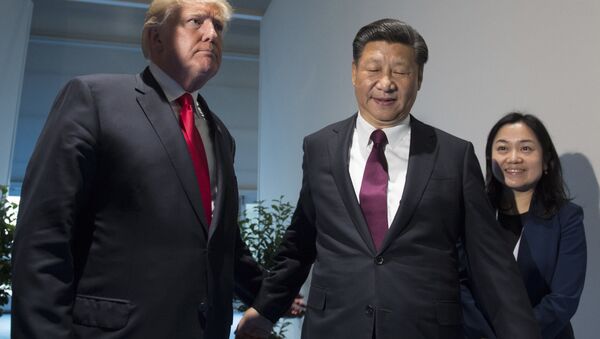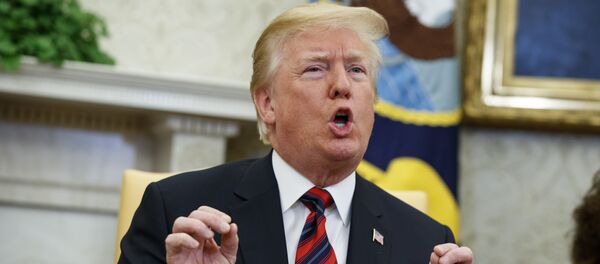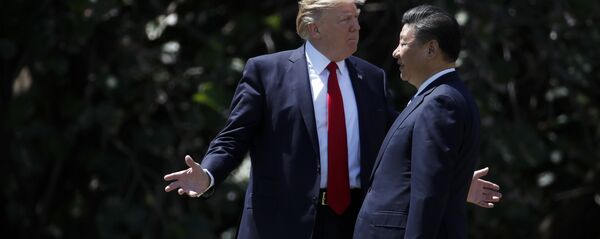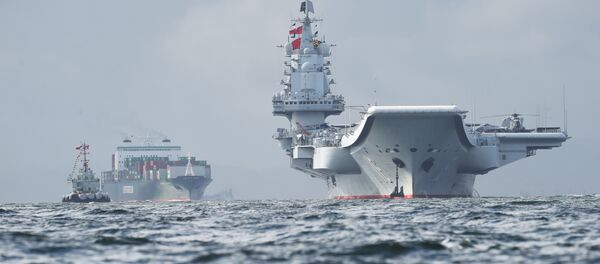China and the United States can cooperate in the sphere of trade, but if Washington takes measures against Beijing, the latter will certainly respond in a tit-for-tat manner, said Bian Yongzu, a researcher with the Chongyang Institute for Financial Studies at the People's University of China.
"If the US deliberately creates trade barriers and provokes a trade war, then this is not a market problem, it is already a political problem," Bian told Sputnik China. "Problems cannot be solved this way. According to some experts, the US is deliberately exerting pressure on China."
The announcement preceded Commerce Secretary Wilbur Ross' summit with Chinese Vice Premier Liu He on June 2-3 in Beijing.
In response to Washington's sudden change of heart which de facto undermined the May 19 joint statement on the suspension of the tariff frictions, Beijing made it clear that once the US imposes new restrictions on Chinese imports, it would nullify all previous agreements reached by the sides.
"China does not demonstrate cowardice, but at the same time does not exert pressure on the US amid trade frictions," Bian pointed out, stressing that Beijing has "a whole set of adequate countermeasures" to respond to Washington's tariff war.
According to observers, the US representative has not gained any tangible results during the recent meeting.
For their part, the Chinese have issued a statement saying that China is willing to increase imports from other countries, "including the US," to address the needs of the population of the People's Republic of China (PRC).
"All economic and trade outcomes of the talks will not take effect if the US imposes any trade sanctions including raising tariffs," the statement emphasized.
According to Andrei Volodin, an analyst at the Institute of Contemporary International Studies of the Diplomatic Academy, Trump's assertiveness was resisted by Chinese President Xi Jinping, who does not intend to give in without reciprocal moves on the part of the US.
"China behaves logically, because the US trade deficit is the result of the inefficient American economy," the Russian academic opined. "The US deficit in trade with China began to reach its peak in 2005-2006. At that time, China was not so active either in the US market or in the global economy. Therefore, one could say that China's 'dumping prices' didn't affect the American economy. China understands this perfectly. It also makes it clear that its huge financial resources are invested in US securities, which means that the two countries will have to negotiate."
Now it all depends on whether the US will give up its plan to impose additional tariffs on Chinese goods on June 15. If Trump's threats become reality the trade war will continue to gain pace.
Meanwhile, China is seeking opportunities to beef up its presence on global markets. Speaking to Xinhua, Chinese Ambassador to Russia Li Hui singled out the Eurasian Economic Union which has "great potential" according to the diplomat. On May 17, the EAEU and China inked an agreement on trade and economic cooperation in Astana.
The views and opinions expressed by Bian Yongzu and Andrei Volodin are those of the speakers and do not necessarily reflect those of Sputnik.





